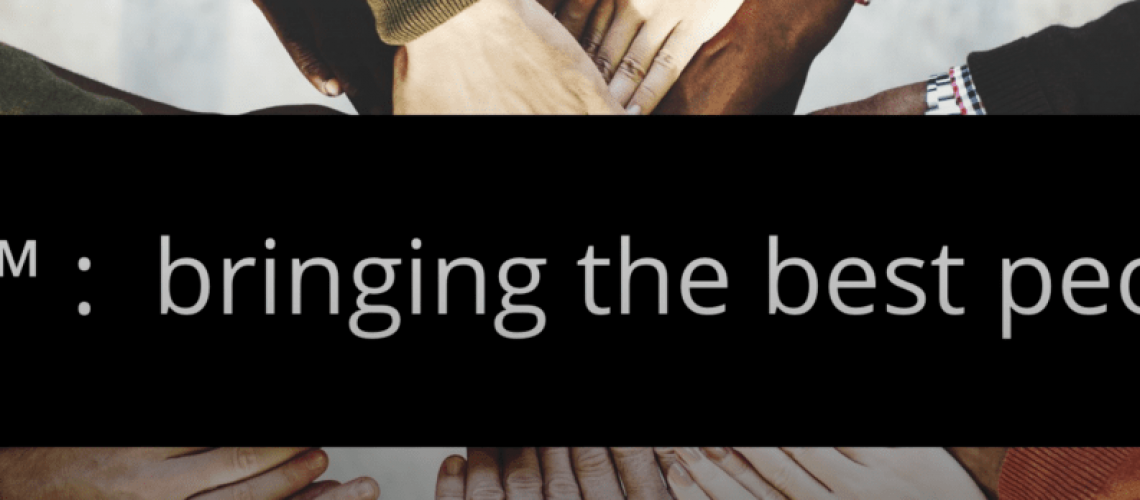For those in my network who have lost their jobs last year, I’m very sorry. While 2020 was extraordinarily difficult, losing employment can be a challenge at any time.
I’ve created a list of hard truths & observations about job-hunting and networking I've learned over the years that I’d like to share with you, as well as with others still currently employed.
Some of these remarks may not be immediately applicable but I encourage you to think about them for the future. They include advice from mentors, tactics I’ve learned & applied myself, and some things I’m still learning today (and will apply in future jobs); I think they will make all of us more resilient in the face of future adversity.
Find your next job with ALLY
1. Do not define your self-worth by your job, but do ensure your family’s security.
A job is something you do, not who you are. Never use an annual ranking or performance review to define your "status" -- rather, use them to seek out feedback for improvement in your current job and for your future career development. With the volatility of the oil and gas industry, prior generations who weathered the “boom & bust” cycles have shared sage advice with me -- always keep 3-6 months of living budget available in liquid assets in the event of a downturn such as today’s economy.
2. Every job is a continuous two-way interview.
Any employer is always evaluating your performance and you should always question if you still feel comfortable working for them. Similarly, every job is a one-month contract, regardless of title or status. Most US-based full-time positions are with "at-will" employers, which means they can terminate you whenever they choose. While “full-time” employment can offer critical benefits like group health insurance & company-matched stock, it does not guarantee long-term stability.
3. Keep your skills relevant and continuously improve them.
This can be accomplished through formal or informal training. Make the time to take online classes & attend webinars. Obtain useful professional certification & licenses in your field – whether technical (PG/PE), managerial (PMP), technology (AWS), or software (GIS/Python) – while you're working. You may not need it for your current job but you might for your next one.
Some employers will pay for these courses, whereas they can be doubly expensive to pay for while unemployed. Learn to use your access to valuable resources (e.g. software licenses, database subscriptions) in your current job to expand your proficiencies. Utilize free (or low-cost) online training platforms such as Coursera, Udemy, government/university lecture series, and even YouTube (professional societies and service companies have informative content on their channels).
4. Broadly demonstrate your skills and share your expertise with others.
Actively volunteer in professional organizations & community service. These activities provide professional networking & technical leadership opportunities and also serve as venues to build your soft skills such as time management, organizing events, conflict resolution, budgeting & forecasting, influencing others, etc. Always be available to mentor those around you. Even if you're early career, you have something to share through mentorship. Be a resource to those around you and don't selfishly hoard information – building up the skills of everyone around you is the best way to network.
You may be the expert in some subject and stably employed at one point of your career and then unemployed and relying on your network at another point – wouldn’t you rather have a legion of your mentees out there who are willing to return your favors?
5. Always keep your resume (and LinkedIn profile) up to date and flexible for any use.
You never know when you're going to need it and it is not easy to quickly cobble one together after 20 years of neglect during constant employment. Focus your resume on your skills and the measurable results or impacts you've have generated. Keep track of tangible metrics like money saved, resources added, people and budgets managed, etc. I’ve found it also helps to keep a long, CV-style resume with all your information – then use this to create other short, highly focused resumes tailored to the jobs you are applying for when they are needed.
6. Ask for (and GIVE) LinkedIn recommendations at the end of every job move.
Do this whether you are making an external move to a new contract/new job or an internal move within your organization. You will get more useful feedback when it is fresh on the minds of your colleagues & supervisors. And give, give, give recommendations to those you deem to deserve them, whether or not they reciprocate and write one for you.
7. Choose a strategy for your LinkedIn connections and curate them.
Do you want a tight network of only people you’ve worked with previously in your industry? Do you want a broad network of people you’ve never met but expand your 2nd & 3rd degree connections in other industries or peripheral roles? Or do you want a mix of these two? My personal strategy is to keep >90% of my connections with people that I know personally (worked together, met through professional organizations, went to school/training together, etc.) and the remainder of my connections are with people whom I hope to meet in the future (and would be willing to sit down for a drink/meal & conversation).
8. Networking only works if YOU continuously put in the effort.
Networking isn’t reaching out to people who can help you – it is an active effort of reaching out to help other people. People aren't going to (only) network for you when you need a job. And put in the effort for networking constantly, not just when you're looking for a job. It takes continuous effort over time. When networking, you're building relationships for the future. Don’t focus just on what you need in the moment. It might be a week away or six months away when the work you’re putting in might help you or help someone else.
9. Always be looking for the next job(s) you want.
Be aware of what opportunities are out there. If you find yourself laid off, you should immediately have an understanding of where to start looking and hopefully you have already established connections that will help you reach your new goal(s).
10. If you're job-hunting, also help other people find jobs.
If you see something that can help someone, pass it along, even if it means sharing a position where you may be in direct competition. In the end, the employer will (hopefully) select the best candidate and even if you don’t get the job, you’ve established stronger connections within your network that may help in the long run (e.g. that connection you’ve helped may help you find your next 2 or 3 jobs).
I hope you find these recommendations useful. Please comment & discuss and share your own experiences or advice. Together, we can all help each other get through this tough time. Please reach out (comment publicly or private message me) if I can provide any help with connections or recommendations. And for those job-hunting right now, check out ALLY's job listings and apply to some of the biggest companies fueling the energy future.
Update your profile
Be sure your ALLY profile is up to date so that we can deliver the content that's right for you.



